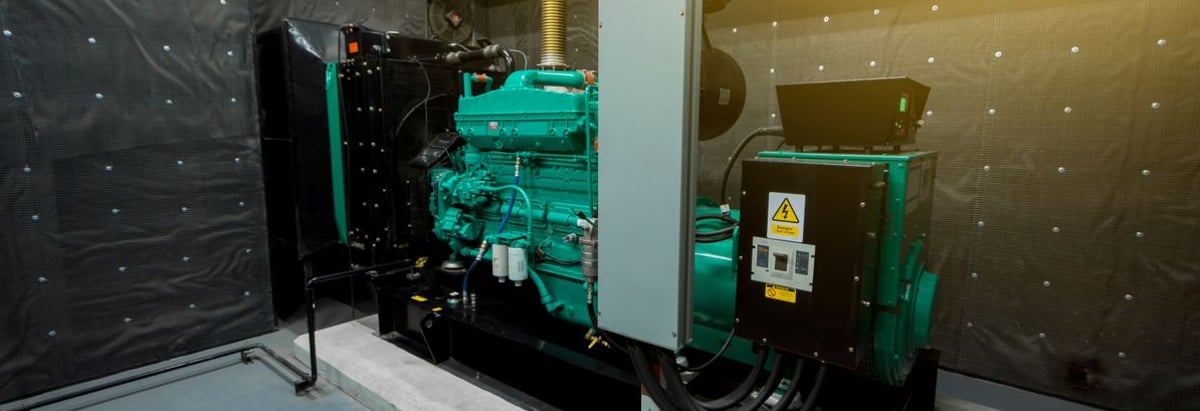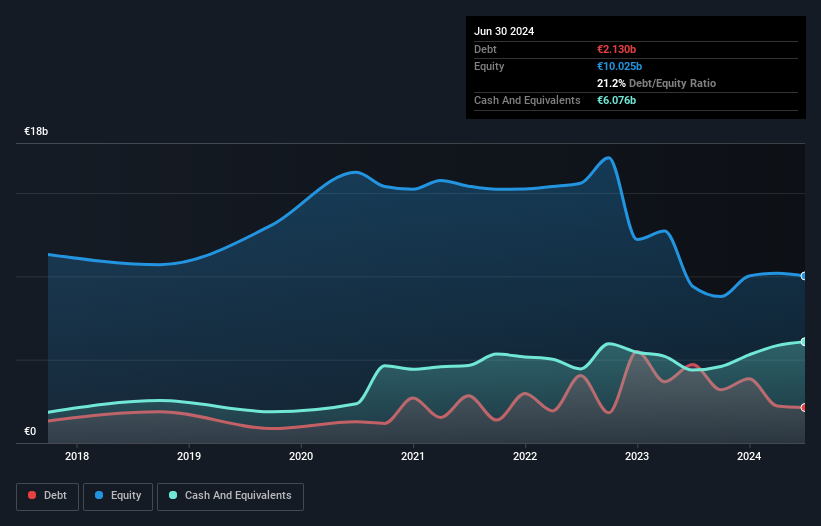
David Iben put it well when he said, 'Volatility is not a risk we care about. What we care about is avoiding the permanent loss of capital.' So it might be obvious that you need to consider debt, when you think about how risky any given stock is, because too much debt can sink a company. Importantly, Siemens Energy AG (ETR:ENR) does carry debt. But the real question is whether this debt is making the company risky.
Why Does Debt Bring Risk?
Debt is a tool to help businesses grow, but if a business is incapable of paying off its lenders, then it exists at their mercy. If things get really bad, the lenders can take control of the business. However, a more common (but still painful) scenario is that it has to raise new equity capital at a low price, thus permanently diluting shareholders. Having said that, the most common situation is where a company manages its debt reasonably well - and to its own advantage. The first step when considering a company's debt levels is to consider its cash and debt together.
View our latest analysis for Siemens Energy
What Is Siemens Energy's Net Debt?
The image below, which you can click on for greater detail, shows that Siemens Energy had debt of €2.13b at the end of June 2024, a reduction from €4.71b over a year. But it also has €6.08b in cash to offset that, meaning it has €3.95b net cash.

How Strong Is Siemens Energy's Balance Sheet?
The latest balance sheet data shows that Siemens Energy had liabilities of €33.3b due within a year, and liabilities of €7.82b falling due after that. On the other hand, it had cash of €6.08b and €11.8b worth of receivables due within a year. So its liabilities total €23.3b more than the combination of its cash and short-term receivables.
This deficit is considerable relative to its very significant market capitalization of €30.5b, so it does suggest shareholders should keep an eye on Siemens Energy's use of debt. This suggests shareholders would be heavily diluted if the company needed to shore up its balance sheet in a hurry. Despite its noteworthy liabilities, Siemens Energy boasts net cash, so it's fair to say it does not have a heavy debt load! The balance sheet is clearly the area to focus on when you are analysing debt. But ultimately the future profitability of the business will decide if Siemens Energy can strengthen its balance sheet over time. So if you're focused on the future you can check out this free report showing analyst profit forecasts.
Over 12 months, Siemens Energy reported revenue of €33b, which is a gain of 4.6%, although it did not report any earnings before interest and tax. We usually like to see faster growth from unprofitable companies, but each to their own.
So How Risky Is Siemens Energy?
Although Siemens Energy had an earnings before interest and tax (EBIT) loss over the last twelve months, it made a statutory profit of €577m. So when you consider it has net cash, along with the statutory profit, the stock probably isn't as risky as it might seem, at least in the short term. With revenue growth uninspiring, we'd really need to see some positive EBIT before mustering much enthusiasm for this business. When we look at a riskier company, we like to check how their profits (or losses) are trending over time. Today, we're providing readers this interactive graph showing how Siemens Energy's profit, revenue, and operating cashflow have changed over the last few years.
If, after all that, you're more interested in a fast growing company with a rock-solid balance sheet, then check out our list of net cash growth stocks without delay.
New: Manage All Your Stock Portfolios in One Place
We've created the ultimate portfolio companion for stock investors, and it's free.
• Connect an unlimited number of Portfolios and see your total in one currency
• Be alerted to new Warning Signs or Risks via email or mobile
• Track the Fair Value of your stocks
Have feedback on this article? Concerned about the content? Get in touch with us directly. Alternatively, email editorial-team (at) simplywallst.com.
This article by Simply Wall St is general in nature. We provide commentary based on historical data and analyst forecasts only using an unbiased methodology and our articles are not intended to be financial advice. It does not constitute a recommendation to buy or sell any stock, and does not take account of your objectives, or your financial situation. We aim to bring you long-term focused analysis driven by fundamental data. Note that our analysis may not factor in the latest price-sensitive company announcements or qualitative material. Simply Wall St has no position in any stocks mentioned.
About XTRA:ENR
High growth potential with acceptable track record.


